THE AVENGERS: You Can Have Your Bombast And Conviction, Too
It's almost beside the point to write a review of The Avengers in the wake of its mega-success. As of this writing, it has already claimed over $350 million at the U.S. box office alone and will most likely rake in over a billion dollars worldwide before its theatrical run comes to an end. Beyond the financial success, it has also been embraced by critics and fans alike as an overdue validation for both Joss Whedon's cinematic career and the genre of superhero movies itself. An almost universal decision has been made for the moviegoers of the world to wrap this film in its loving embrace.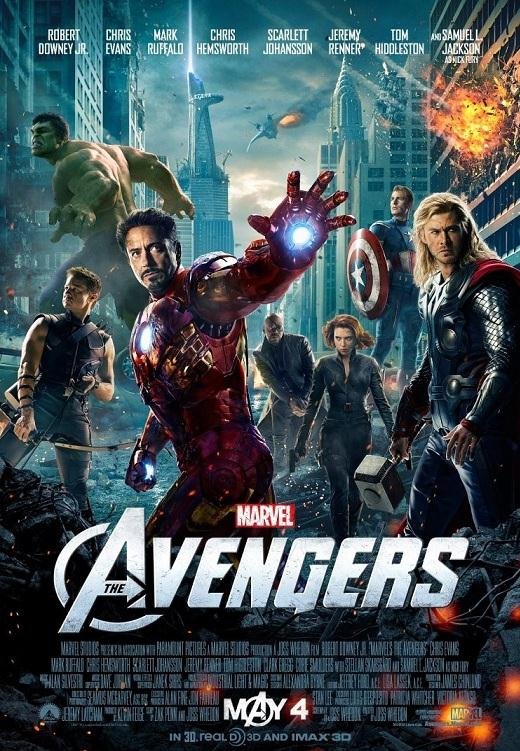 However, the box office returns, critical praise and fanboy love obscure the most interesting things about the success of The Avengers. To begin with, it doesn't feel like most modern blockbusters, comic book-based or otherwise. Audiences have become used to major studio "event" movies being hollow exercises in technique and bombast. The Avengers works because it sidesteps the rules of that blockbuster template to create the most oddly personalized superhero flick to emerge from Hollywood. Simply put, there's more going on here than the right geek getting to make the right movie.Befor
However, the box office returns, critical praise and fanboy love obscure the most interesting things about the success of The Avengers. To begin with, it doesn't feel like most modern blockbusters, comic book-based or otherwise. Audiences have become used to major studio "event" movies being hollow exercises in technique and bombast. The Avengers works because it sidesteps the rules of that blockbuster template to create the most oddly personalized superhero flick to emerge from Hollywood. Simply put, there's more going on here than the right geek getting to make the right movie.Befor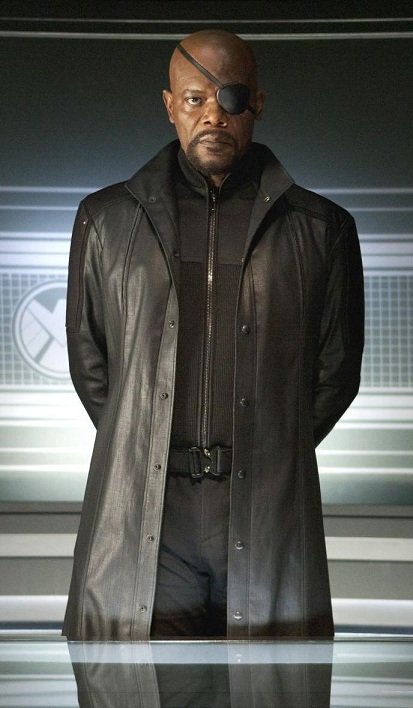 e that can be addressed, a brief plot synopsis is in order. The Avengers is the culmination of Marvel's recent wave of blockbuster superhero flicks - namely, Iron Man parts one and two, Thor and Captain America (The Hulk doesn't really fall into this cycle but the character is included here to round the team out). Those films introduced something called the Tesseract, a cube of glowing energy that is seen by the world governments as the potential solution to Earth's energy problems. Unfortunately, the Tesseract is capable of terrible things, as well - and The Avengers starts with a bang when Loki (Tom Hiddleston), Asgardian god of mischief and Thor's brother, storms a secret base to steal it so he can rule the Earth.
e that can be addressed, a brief plot synopsis is in order. The Avengers is the culmination of Marvel's recent wave of blockbuster superhero flicks - namely, Iron Man parts one and two, Thor and Captain America (The Hulk doesn't really fall into this cycle but the character is included here to round the team out). Those films introduced something called the Tesseract, a cube of glowing energy that is seen by the world governments as the potential solution to Earth's energy problems. Unfortunately, the Tesseract is capable of terrible things, as well - and The Avengers starts with a bang when Loki (Tom Hiddleston), Asgardian god of mischief and Thor's brother, storms a secret base to steal it so he can rule the Earth.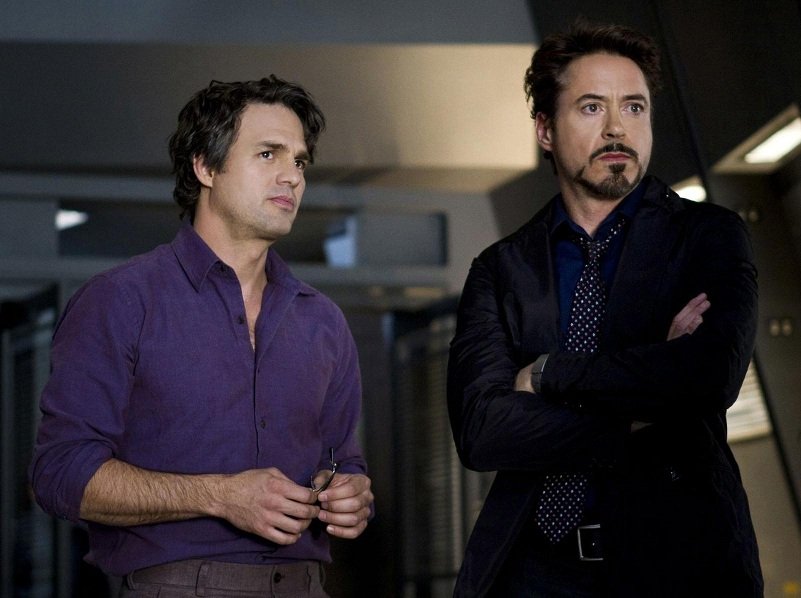 Loki's actions force secret agent Nick Fury (Samuel L. Jackson) to resurrect a failed plan called "The Avengers Initiative," which aims to gather the world's superheroes into a team that can fight off interplanetary threats. In short order, he gathers up Bruce Banner/The Hulk (Mark Ruffalo), Tony Stark/Iron Man (Robert Downey Jr.) and Steve Rogers/Captain America (Chris Evans) with the help of f
Loki's actions force secret agent Nick Fury (Samuel L. Jackson) to resurrect a failed plan called "The Avengers Initiative," which aims to gather the world's superheroes into a team that can fight off interplanetary threats. In short order, he gathers up Bruce Banner/The Hulk (Mark Ruffalo), Tony Stark/Iron Man (Robert Downey Jr.) and Steve Rogers/Captain America (Chris Evans) with the help of f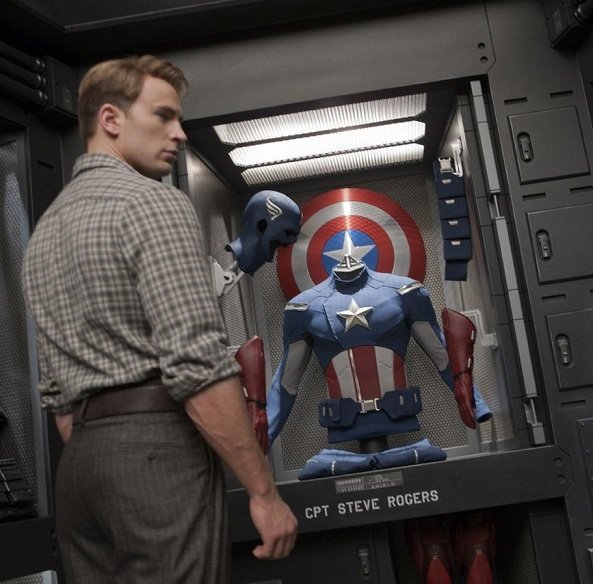 ellow agents Black Widow (Scarlett Johansson) and Hawkeye (Jeremy Renner). Thor (Chris Hemsworth) also pops up once he sees Loki is involved. This is an impressive collection of firepower but it remains to be seen if the diverse personalities can work together - and if they can, whether or not they can stave off a force so powerful that even Loki might not be able to control it.That's a lot to juggle but The Avengers flows with a pleasant ease that makes its all look deceptively easy. Part of it can be chalked up to sheer experience on the part of writer
ellow agents Black Widow (Scarlett Johansson) and Hawkeye (Jeremy Renner). Thor (Chris Hemsworth) also pops up once he sees Loki is involved. This is an impressive collection of firepower but it remains to be seen if the diverse personalities can work together - and if they can, whether or not they can stave off a force so powerful that even Loki might not be able to control it.That's a lot to juggle but The Avengers flows with a pleasant ease that makes its all look deceptively easy. Part of it can be chalked up to sheer experience on the part of writer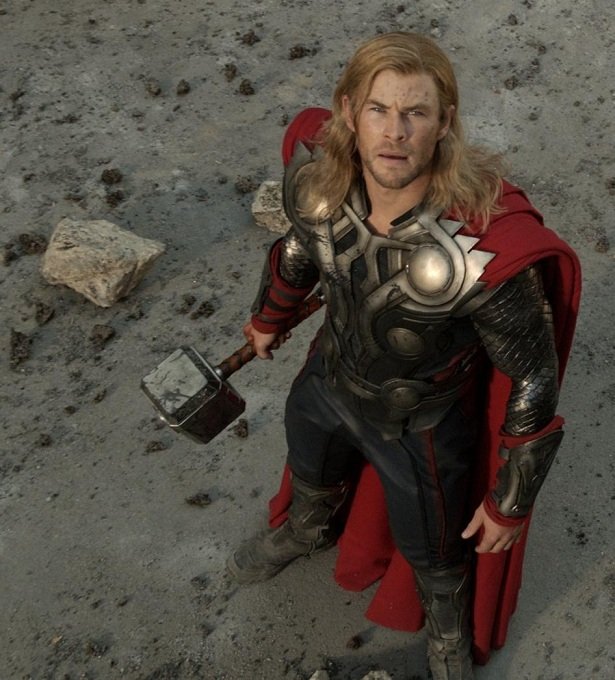 /director Whedon: not only did he guide Buffy The Vampire Slayer through multiple seasons as creator/writer, he also wrote a successful run of the X-Men comic book. Thus, he is clearly at home with making the otherworldly palatable to a mass audience and dealing with elaborate character ensembles as well as big story arcs. He's not shy about the action, either: he satisfies audience expectations by delivering major setpieces in the beginning and middle as well as making virtually the entire third act into one multi-tiered action sequence with multiple payoffs.Howev
/director Whedon: not only did he guide Buffy The Vampire Slayer through multiple seasons as creator/writer, he also wrote a successful run of the X-Men comic book. Thus, he is clearly at home with making the otherworldly palatable to a mass audience and dealing with elaborate character ensembles as well as big story arcs. He's not shy about the action, either: he satisfies audience expectations by delivering major setpieces in the beginning and middle as well as making virtually the entire third act into one multi-tiered action sequence with multiple payoffs.Howev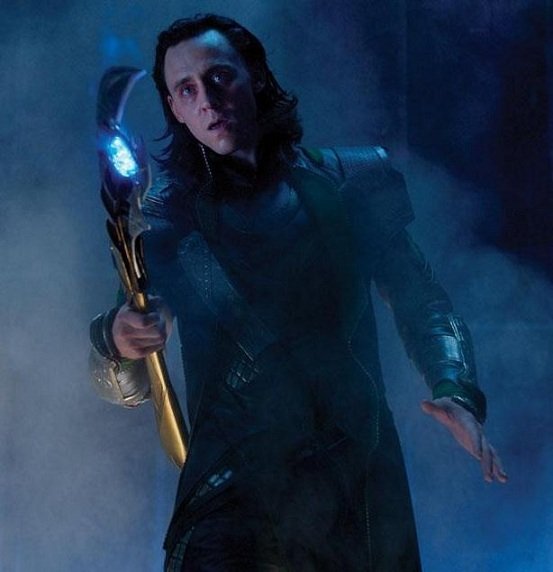 er, there is more to the movie that just professionalism and skill. Whedon has a genuine fondness for the superhero genre that is reflected in the respect he treats his material with. He devotes more time to his heroes' human alter egos than their derring-do and explores their fears and their conflicts in a way that rarely happens in these kinds of films. Better yet, he finds ways to explore his characters that actually enhance the story: for example, one scene has Loki using his scepter to cause the heroes to bicker with each other, thus forcing them to reveal their perceptions of each other, and another scene in which Black Widow allows Loki to think he's taking her apart emotionally so she can get a key bit of information out of him.
er, there is more to the movie that just professionalism and skill. Whedon has a genuine fondness for the superhero genre that is reflected in the respect he treats his material with. He devotes more time to his heroes' human alter egos than their derring-do and explores their fears and their conflicts in a way that rarely happens in these kinds of films. Better yet, he finds ways to explore his characters that actually enhance the story: for example, one scene has Loki using his scepter to cause the heroes to bicker with each other, thus forcing them to reveal their perceptions of each other, and another scene in which Black Widow allows Loki to think he's taking her apart emotionally so she can get a key bit of information out of him.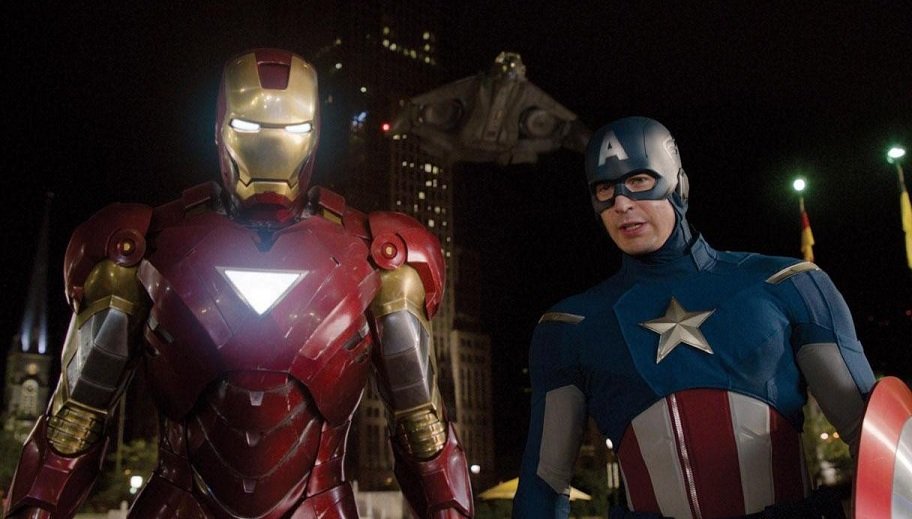 Whedon also finds a good home for his sense of humor, using to add a little light to the shade of the serious business that dominates a lot of event movies. He's often criticized for writing flashy, witty dialogue for the sake of flashy, witty dialogue but the stylized nature of superhero movies works in his favor here. The self-knowing wisecracks serve the characters, all of whom are neurotic and/or self-deprecating to some degree, and they add a personal touch that is often
Whedon also finds a good home for his sense of humor, using to add a little light to the shade of the serious business that dominates a lot of event movies. He's often criticized for writing flashy, witty dialogue for the sake of flashy, witty dialogue but the stylized nature of superhero movies works in his favor here. The self-knowing wisecracks serve the characters, all of whom are neurotic and/or self-deprecating to some degree, and they add a personal touch that is often 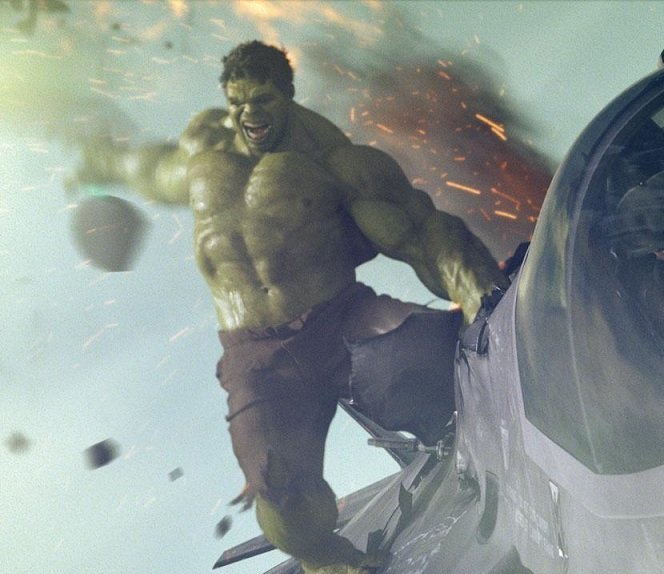 lost in the heavy machinery of the event movie. Most importantly, it's an additional way for Whedon to layer the characterizations: when these heroes crack wise, they're almost always revealing something about themselves or their view of the world.Thus, when the big action kicks in, we have an investment in them as actual characters rather than pre-fab "hero' archetypes. On that note, the action sequences have a similar level of care in their mise en scene. Whedon uses the big techno-toys of modern event filmmaking, particula
lost in the heavy machinery of the event movie. Most importantly, it's an additional way for Whedon to layer the characterizations: when these heroes crack wise, they're almost always revealing something about themselves or their view of the world.Thus, when the big action kicks in, we have an investment in them as actual characters rather than pre-fab "hero' archetypes. On that note, the action sequences have a similar level of care in their mise en scene. Whedon uses the big techno-toys of modern event filmmaking, particula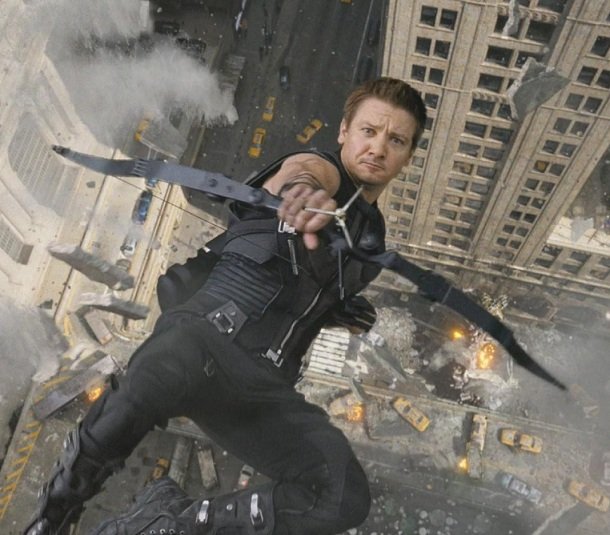 rly CGI, but he manages to avoid the overkill and flash cuts that directors like Michael Bay favor. Instead, he goes for a clean style in which the action scenes are laid out so viewers can understand the spatial relationships and become involved in what's going on rather than succumb to being dazzled by computer-assisted flash.Finally, Whedon uses his cast well. It would be hard to fail with the array of talent he has here but it is pleasing to note that he gives each of his major characters space to give a performance amidst the plotting and action. Downey shows he has perfected his "fast-talking cynic with a secret heart"
rly CGI, but he manages to avoid the overkill and flash cuts that directors like Michael Bay favor. Instead, he goes for a clean style in which the action scenes are laid out so viewers can understand the spatial relationships and become involved in what's going on rather than succumb to being dazzled by computer-assisted flash.Finally, Whedon uses his cast well. It would be hard to fail with the array of talent he has here but it is pleasing to note that he gives each of his major characters space to give a performance amidst the plotting and action. Downey shows he has perfected his "fast-talking cynic with a secret heart" 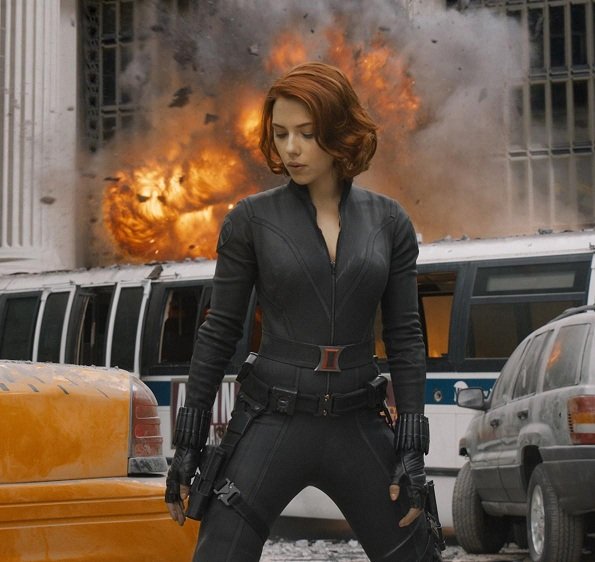 routine, Evans is appropriately tough yet humble as a lost-in-time hero trying to fit in and Hemsworth delivers an appropriately grandiose Shakespeare-by-way-of-Conan take on the godly Thor. That said, the real surprises here are Johannson and Ruffalo. Johannson makes a strong action heroine, responding to the character's depth and dark past, and Ruffalo offers the best interpretation of Bruce Banner since the days of Bill Bixby by going for a subtle, Method-style approach.
routine, Evans is appropriately tough yet humble as a lost-in-time hero trying to fit in and Hemsworth delivers an appropriately grandiose Shakespeare-by-way-of-Conan take on the godly Thor. That said, the real surprises here are Johannson and Ruffalo. Johannson makes a strong action heroine, responding to the character's depth and dark past, and Ruffalo offers the best interpretation of Bruce Banner since the days of Bill Bixby by going for a subtle, Method-style approach.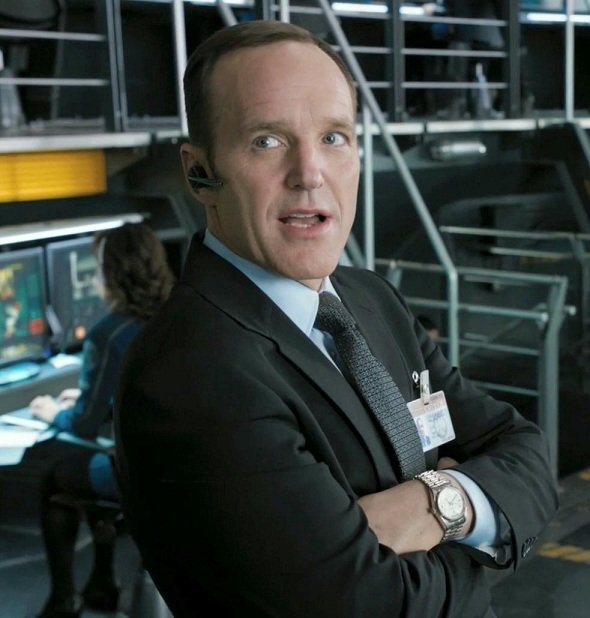 Elsewhere, Clark Gregg has a juicy role as a government guy carried over from the last few Marvel flicks who acts a stand-in for the audience with his fanboyish admiration of the heroes. It could also be argued he has the most important moment of the movie when he tells Loki that his scheme is destined to fail because he lacks "conviction." Not only does that encapsulate the film's approach to what heroism is but it captures Whedon's approach to the genre. He actually means it and this strength of filmmaking conviction assures that The Avengers is the rare event movie with a heart that wasn't devised by marketing execs or a development committee.
Elsewhere, Clark Gregg has a juicy role as a government guy carried over from the last few Marvel flicks who acts a stand-in for the audience with his fanboyish admiration of the heroes. It could also be argued he has the most important moment of the movie when he tells Loki that his scheme is destined to fail because he lacks "conviction." Not only does that encapsulate the film's approach to what heroism is but it captures Whedon's approach to the genre. He actually means it and this strength of filmmaking conviction assures that The Avengers is the rare event movie with a heart that wasn't devised by marketing execs or a development committee.


